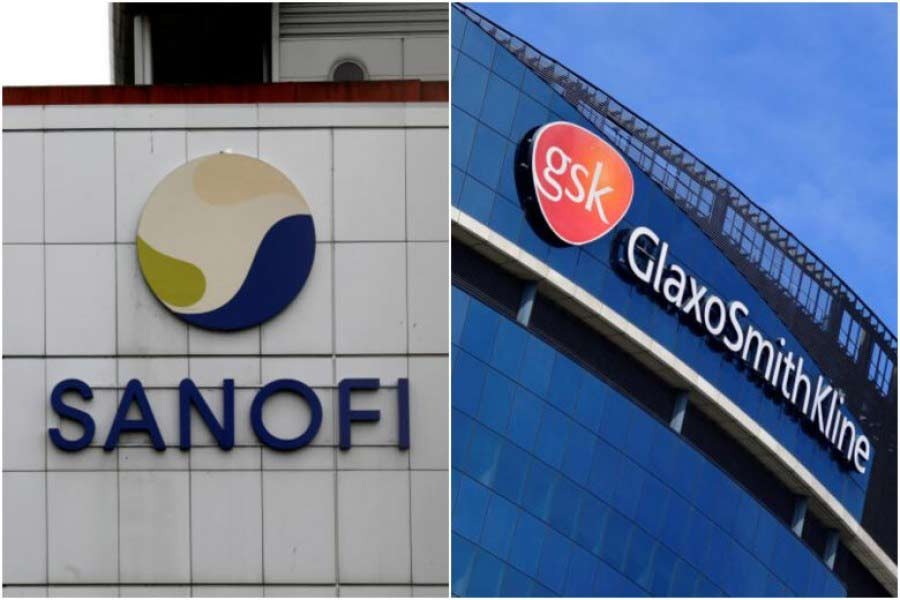French drugmaker Sanofi and its British partner GlaxoSmithKline have said their Covid-19 vaccine candidate showed 100 per cent efficacy against severe Covid-19 and hospitalisation, with 75 per cent efficacy against moderate or severe disease.
"No other global Phase 3 efficacy study has been undertaken during this period with so many variants of concern, including Omicron, and these efficacy data are similar to the recent clinical data from authorised vaccines," said Thomas Triomphe, executive vice president for Sanofi Vaccines, citing early data from the late-stage trial of the vaccine as a standalone two-dose shot.
According to Reuters, Sanofi and GlaxoSmithKline are seeking regulatory approval for their Covid-19 vaccine to be used as a booster, as well as a standalone two-dose shot, after several setbacks.
The companies said on Wednesday they intended to submit data to regulators from a late-stage trial of the vaccine, and another testing it as a booster, with full results for both studies expected to be published "later this year."
Sanofi, which plans to produce the vaccine in France, Italy and the United Sates, is hoping for a comeback after falling behind in the race for COVID-19 shots, while GSK, the world's biggest vaccine maker by sales, has not developed its own candidate and is instead contributing its adjuvant technology to developers.
Sanofi-GSK's shot relies on a conventional protein-based approach, compared with the newer mRNA technology used in established COVID-19 vaccines from Pfizer-BioNTech, and Moderna.
It is similar in technology to one of Sanofi's seasonal influenza vaccines, and is coupled with GSK's adjuvant, a substance that increases the effectiveness of a shot. It is also easier to store and transport than some rival shots.
The protein technology, which is also behind the recently approved COVID-19 shot from Novavax, has been in use since the mid-1980s, leading public health experts to hope that some of those who have shunned mRNA shots might opt for a vaccine class with a decades-long safety record.
The companies said final analysis of the booster trial, which included participants previously given shots based on mRNA technology or adenovirus viral vectors, showed it could increase neutralising antibodies by 18 to 30 times.
"We are confident that this vaccine can play an important role as we continue to address this pandemic and prepare for the post-pandemic period," said President of GSK Vaccines, Roger Connor.
The companies said they were in discussions for approval of their shot with regulators including the US Food and Drug Administration and European Medicines Agency.
A Sanofi spokesperson added the filing was imminent and would take a few days at most.
He reiterated the French drugmaker's commitment to supply a total of 75 million doses to the EU and Britain, as well as 100 million to the United States, contingent on regulatory approval.
The planned US deliveries would be governed by a $2.1 billion contract with the US government signed in July 2020, he added.
Discussions with the international vaccine-sharing facility COVAX about shipments to lower-income countries are ongoing.
The head of the Coalition for Epidemic Preparedness Innovations (CEPI), Richard Hatchett, said new protein-based vaccines administered with adjuvants could "potentially become the workforce for vaccinations in the future," when asked about the role of late-comers to the vaccine race.
CEPI co-runs COVAX.
Sanofi and GSK surprised investors in December by delaying key results from the vaccine trials to this year, while Sanofi also dropped plans for its own mRNA shot due to the dominance of Pfizer-BioNTech and Moderna.


